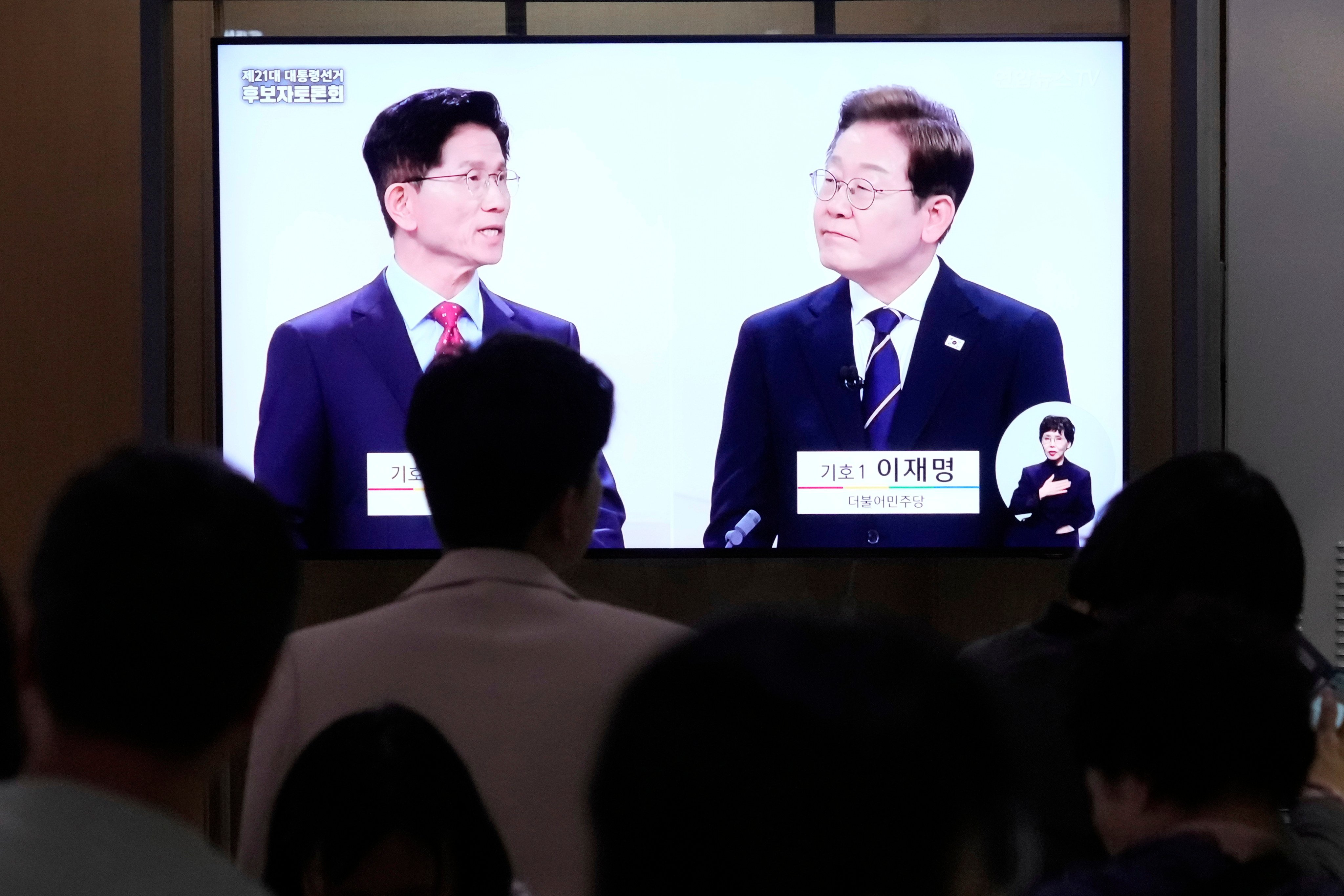After hardline Yoon, South Korea needs a more balanced foreign policy
The next leader must broaden diplomacy while rejecting nuclear arms and regaining wartime military control

With South Korea’s presidential election less than two weeks away, the stakes couldn’t be higher for a nation at a critical crossroads. Since former president Yoon Suk-yeol’s impeachment for declaring martial law in December, the country desperately needs leadership to restore domestic stability and navigate increasingly complex geopolitics.
Society remains deeply divided, with massive demonstrations that support or oppose Yoon. The political turmoil extends to the ruling People Power Party (PPP), which has repeatedly changed its presidential candidate. Recent polling shows opposition Democratic Party candidate Lee Jae-myung leading with 49 per cent support, well ahead of the PPP’s Kim Moon-soo, at 27 per cent.
While Lee’s party traditionally leans left, he has shifted noticeably towards the centre for his campaign. Mindful of undecided conservative voters, he has moderated his rhetoric, abandoning many of the progressive stances that defined his presidential bids in 2017 and 2022, when he faced criticism for being too soft on North Korea and too pro-China.
His campaign launch speech omits any mention of North Korea, focuses on domestic priorities and calls for “proactive and forward-looking pragmatism”. This reflects the delicate balancing act required of South Korean politicians, who must address domestic concerns while preparing for complex foreign policy challenges.
While economic concerns dominate voters’ minds – particularly after the won’s recent plummet – foreign policy demands equal attention. South Korea’s position at the nexus of major power competition makes geopolitical considerations unavoidable. Any president who neglects this risks compromising national security and long-term stability.
The first foreign policy challenge is to improve relations with North Korea. Ties have deteriorated dramatically, with Pyongyang declaring Seoul its “main enemy” and abandoning reunification. Yoon’s pivot towards the United States and Japan while emphasising military deterrence over dialogue with Pyongyang further strained ties.
While restoring ties to the warmth reached under Moon Jae-in’s administration seems unlikely, the next president must prioritise de-escalation. The dismantling of communication channels and cooperation frameworks has raised the risk of miscalculation to dangerous levels. Rebuilding these mechanisms should be a top priority.
One crucial avenue would be to encourage the US to renew engagement with North Korea, leveraging US President Donald Trump’s summit history with Kim Jong-un and openness to resuming talks. Trump’s rapport with Kim represents a rare diplomatic opening Seoul should strategically support.
Trump previously demanded Seoul increase its funding for US military presence on the peninsula, raising concerns about Washington’s reliability in a security crisis. With Pyongyang likely to continue provocations while relations with the US remain frozen, helping to renew Trump-Kim dialogue ultimately serves Seoul’s national security interests.
This doesn’t mean adopting a soft stance towards North Korea. Rather, it means rebalancing to a policy of strong defensive capabilities while pursuing dialogue and negotiations. History shows periods of engagement typically result in fewer provocations from Pyongyang, creating space for diplomacy.
While Washington remains Seoul’s most crucial ally under the 1953 mutual defence treaty, South Korea’s next president must also cultivate broader diplomatic relationships so Seoul is not left vulnerable to shifting political winds in Washington.
China remains South Korea’s largest trading partner, and economic interdependence necessitates pragmatic engagement despite ideological differences. The costly economic retaliation South Korea experienced for its 2017 deployment of the Terminal High Altitude Area Defence (THAAD) missile defence system is a reminder of the risks of mismanaging this relationship.
Seoul must also exercise caution regarding any plans by the Trump administration to expand the use of military bases and US troops in South Korea, for example, to contain China. Getting drawn into a conflict between the world’s two superpowers would severely undermine Seoul’s interests – the next president must clearly communicate South Korea’s strategic autonomy.
This highlights another priority: accelerating the transfer of wartime operational control of the South Korean military back to a Korean commander. It would affirm strategic sovereignty and provide greater flexibility in a crisis, prevent unwanted entanglements in regional conflicts while maintaining the alliance framework.
Besides rebalancing ties with the superpowers, the incoming president should revitalise initiatives like the New Southern Policy to strengthen the partnership with the Association of Southeast Asian Nations. Asean represents not only economic opportunity but a diplomatic space where South Korea can exercise middle-power leadership. The Asean-Korea Think Tank Dialogue provides yet another opportunity.
The next administration must also nurture ties with European allies, particularly as the European Union recalibrates its relationship with Trump’s America. European partners can offer South Korea technological cooperation, investment opportunities and diplomatic support. Their growing strategic interest in the Indo-Pacific aligns with Seoul’s need for diverse partnerships.
The new president should also maintain communication with Russia, rather than let the Ukraine conflict sever relations. With Moscow as Kim’s closest ally, stable Seoul-Moscow ties could prove essential for improving inter-Korean relations.
Finally, growing domestic calls to develop an independent nuclear arsenal must be rejected. Such a move could trigger a regional arms race, dramatically increasing instability throughout Northeast Asia. Instead, South Korea should position itself as an advocate for regional disarmament and conflict resolution, leveraging its technological expertise to promote verification mechanisms and confidence-building measures.
By adopting this balanced approach to foreign policy – maintaining strong defensive capabilities while pursuing dialogue, diversifying diplomatic partnerships beyond the trilateral framework with the US and Japan, and championing regional stability – South Korea’s next president can navigate the peninsula’s complex challenges while building a foundation for long-term peace and prosperity.
In an era of increasing great power competition, South Korea’s strategic autonomy depends not on choosing sides but on cultivating diverse relationships that serve its national interests and contribute to regional stability.